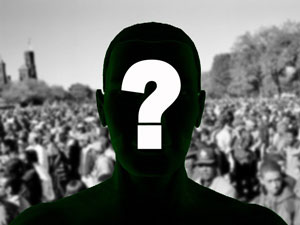WILLIAM.REED -Guest Columnist-

Instead of irate demands to correct disparities of America’s discriminatory past, Blacks who have been designated by the mainstream as our “leaders” are caught up in the drama of whether such disparities even exist.
To that point, Rev. Jesse Jackson has said that President Barack Obama has not spent any time with traditional Black leaders and should be more engaged with Blacks and their needs around issues of poverty and unemployment. Rev. Jackson says there is “unfinished business” regarding equity for Blacks in America’s society. But, long-ago sullied by Blacks set on assimilating, Rev. Jackson’s assertion of “structural inequity still plaguing Blacks in America” is dismissed as race hustling and pandering.
Blacks need advocates for racial justice in America. So if not Jesse Jackson, or Al Sharpton, who? Black Americans make up about 13 percent of the U.S. population, but on average die younger than Whites, earn less money, are more likely to be imprisoned and get less education. Who has the “street-cred” to speak, and be heard, on Black issues and aspirations?
Who do you say is “da man”? Name five leading and living Blacks and undoubtedly, Nation of Islam head Minister Louis Farrakhan will be on the list. Bean Pies, fish and newspapers are the protocols Farrakhan uses across Black America. The “Farrakhan Factor” is activism among Blacks and avocation of a racial definition (or redefinition) of Black national identity, as opposed to multiculturalism.
Min. Farrakhan has been a major voice on Black issues and interests for 30 years. The nationally-circulated Final Call newspaper has been a staple in African Americans’ homes since he founded it in 1979. The Final Call is in the tradition of Black Nationalist philosophies and principles of 1) Black pride, and 2) economic, political, social and/or cultural independence from White society. The original version of The Final Call was published by Nation of Islam Founder Elijah Muhammad in the 1930s as the Final Call to Islam. It evolved into the Muhammad Speaks Newspaper in the 1960s with a monthly circulation of 2.5 million. Today, The Final Call follows in the tradition of hard-hitting national and international news and coverage of political issues affecting Blacks. The Final Call serves a readership in North America, Canada, Europe, Africa and the Caribbean.
What “designated” Black Leader holds the gravitas of Farrakhan? He and The Final Call follow in a distinguished line of Black Leaders and movements that have developed Black economic power and community and ethnic pride. In the early 20th century, Marcus Garvey preached the ideal of Black Nationalism as an alternative to assimilation into the predominately White culture, as did Elijah Muhammad in the 1960s and ‘70s. As opposed to Blacks who want to assume the values and issues of their oppressors, Marcus Garvey encouraged Blacks to be proud and see beauty in their own kind. The principles of Garveyism were race first, self-reliance and nationhood. Race first is the idea that Blacks should support other Blacks first and foremost and be politically and economically self-reliant.
To disseminate the UNIA’s program, Garvey founded The Negro World newspaper in 1918. Garvey founded the Black Star Line in 1919 as well as the Negro Factories Corporation. Farrakhan’s predecessor, Elijah Muhammad, promoted programs emphasizing racial separation and self-reliance for Blacks. By the 1970s, the NOI owned bakeries, barber shops, coffee shops, grocery stores, cleaners, a printing plant, retail stores, real estate, a fleet of tractor trailers and farmland in Michigan, Alabama and Georgia .
Sadly, most people naming five Black Leaders would include President Obama on the list. But, Obama has revealed himself to be ambivalent on the need to confront racial disparities. His practice has been to rely on Blacks in mainstream media to talk to African Americans. If Pres. Obama wants to reach Black America he should engage with Blacks who actually have the ear and interests of Black Americans. Black publishers, Farrakhan, et al., are the established messengers to Blacks in America. They serve as essential sources of information for those who thirst for truth from the American media; a corporate driven arena muddied with falsehood and deceit.
(William Reed is based in Washington D.C.)












